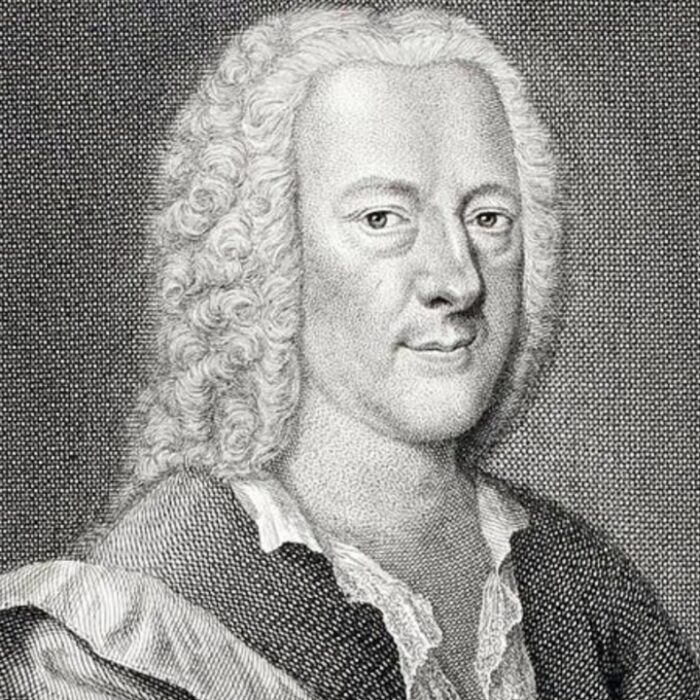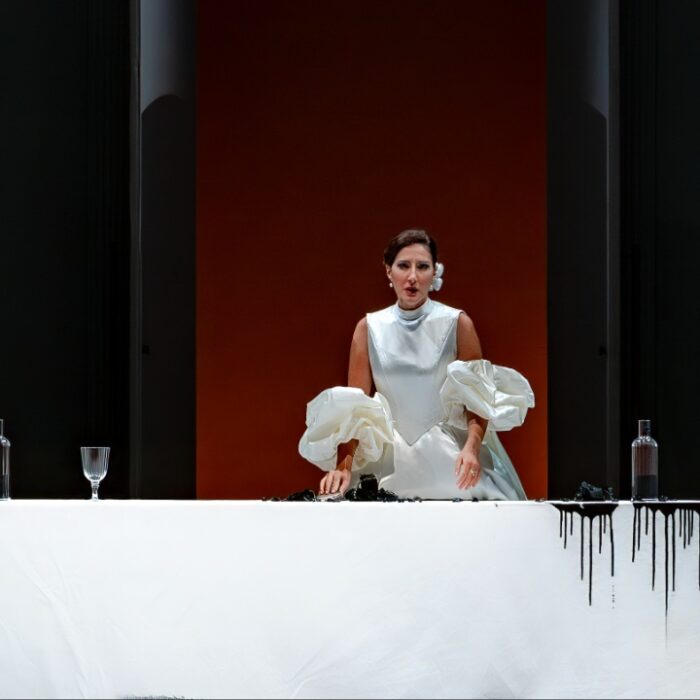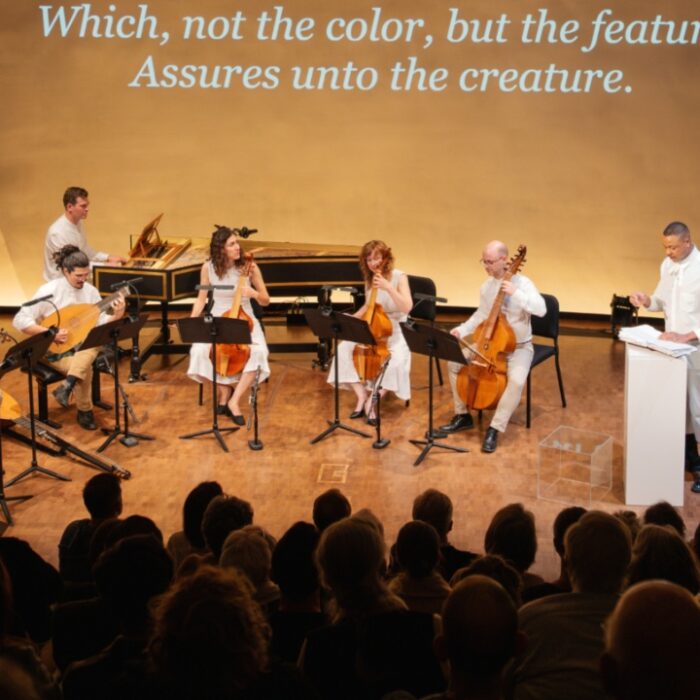
Opera Australia 2022 Review: La Traviata
Stacey Alleaume Makes Her Mark as Top-Notch Violetta
By Gordon WilliamsPhoto credit: Jeff Busby
It has occasionally been observed that audiences for musical theater in recent times often applaud the sets and costumes. The audience for this revival by Constantine Costi of the late Elijah Moshinsky’s 1994 production of “La Traviata,” part of Opera Australia’s winter 2022 season at Sydney Opera House, would have been justified to applaud the designs. But they also had reasons to applaud the company’s delivery of Verdi’s masterpiece of a score.
This was a solid, realistic “Traviata,” albeit updated to the Art Nouveau period from Verdi’s contemporary (for him) setting of the mid-1800s. Michael Yeargan’s sets, Peter J. Hall’s costumes, and Nigel Levings’ lighting augmented the almost unshirking realism aimed for by Verdi and his librettist Francesco Maria Piave in their setting of Dumas fils’ play about the dying courtesan, Violetta, who attempts one more ill-fated search for true love against the disapproval of a sector of her society.
Verdi’s “La Traviata” is an intense interior drama of the sort that became a feature of later 19th century drama. Concessions to grand opera dimensions, however, include moments for chorus, and the chorus in this performance was excellently prepared as usual by Paul Fitzsimon. Those Act two scene two entertainments at Flora’s house are not germane to the plot, but the male chorus’s story of Piquillo the matador (it’s a diversion) was so well done, the narrative so clear, it was one of the moments that unexpectedly garnered applause.
Standouts
The opera revolves around the three principals – Violetta the courtesan who risks another attempt at love before dying, her love-lorn suitor Alfredo, and his socially-conscious father who brings the soprano and tenor’s romance to an end. But the play is also peopled by Violetta’s friends and offsiders and among the supporting roles, standouts included Danita Weatherstone as Annina, Violetta’s loyal maid. In Act Two her impatience with Alfredo’s cluelessness about the sacrifices Violetta is making to sustain their romantic idyll in the country was palpable.
That impatience was made perhaps more biting because we had just been swept up in the joyful ebullience of Armenian tenor Liparit Avetisyan’s “De’ miei bollenti spiriti.” Only the slight lurching of his emphases betrayed the possibility that Alfredo’s optimism may be a tad forced. This was an effective portrayal of a very young, naive man, taken in by the “misterioso” (to quote his Act one aria, “Un dì felice…”) of the love Violetta inspires.
Italian baritone Mario Cassi as Germont, Alfredo’s romance-stifling father, has one of the greatest challenges in psychological portraiture in the repertoire when, in Act two, he must engage in a protracted attempt to persuade Violetta to give up Alfredo in the name, really, of bourgeois respectability. Cassi’s actions (gradually divesting himself of cane, hat, gloves, coat etc…) provided a visual plotting of the character’s gradual thawing out as he is moved by Viloetta’s quiet dignity, but Cassi vocally carried us over the sometimes abrupt psychological beats from the harsh peremptoriness with which he announced his arrival at Violetta and Alfredo’s country escape, to the great plaintive force behind his sympathetic “piangis” as Germont realizes the emotional price he has asked of Violetta. And yet, let’s not forget the set, and the poignant sight of the odd leaf (still one or two of them) falling on this Autumnal scene.
Stealing the Show
As Violetta, Australian-Mauritian soprano Stacey Alleaume stole the show.
This was a marvelously detailed portrait of the consumptive courtesan close to death. The slight stagger at the end of Act one scene one was an obvious sign that all is not well but her delivery of, say, a single word like “gioir” (to rejoice) conveyed a nice tremor of hysteria and desperation in the recitative bridging her musing on loneliness (“È strano!…”) to the joyous re-assertion of her freedom as an unattached woman (“Sempre libera…”). There was a ghostliness to the sound of her concession to Germont’s middle class concerns in their great duet in Act two, and great bitterness in “È tardi…” when she thought Alfredo would not make it back from his “exile” in time to be with her at death. But there was marvelous sense of gesture complementing her vocal characterizations as well, and overall a great arc in her interpretation. It has to said that it was easier to hear and see the subtleties of this interpretation here in the Opera House than in the production of “Traviata” on the Harbor, back in 2021, but I’m reminded that Alleaume also made a success of Violetta in that quite different setting.
Conductor Renato Palumbo revealed a marked appreciation for the atmosphere of doom that lies over this drama. The short breathlessness of the way melody would die away in the prelude seemed to become even more pronounced in this material’s repeat at the beginning of Act three and in the final moments of the tragedy. It was almost as if the production itself had its own musical motif – notes losing energy, halting attempts to regain strength.
And I suppose that was writ large in the contrasted actions of the last bars: “What happiness,” sings Violetta triumphantly. But she collapses.



